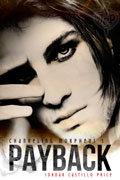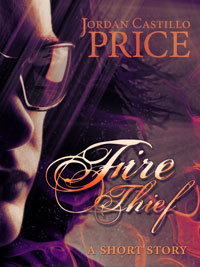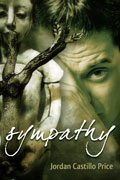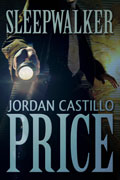JCP Books, LLC
m/m paranormal & horror
Weird and wonderful ebooks you'll want to read again and again!
find a book 
- Among the Living
- Autopilot Engaged
- Betweentimes
- Black Box
- Body and Soul
- Body Art
- Brazen
- Camp Hell
- Canine
- Charmed and Dangerous
- Connecting Flight
- Criss Cross
- Croix de chair
- Dégel
- Elixir
- Fire Thief
- Forget Me Not
- Fluid
- Flying Blind
- Forget Me Not
- GhosTV
- Happily Neverafter
- Heaven Sent
- Hue, Tint and Shade
- Immortal Coil
- In the Dark
- Inside Out
- Into the Bermuda Triangle
- JCP Books Cover Art Gallery
- Life is Awesome
- Locks of Love
- Jackpot
- London Eye
- Loose Change
- Magic Mansion
- Many Happy Returns
- Manikin
- Meatworks
- Media Naranja
- Mind Reader
- Moolah and Moonshine
- One Less Stiff at the Funeral
- Parmi les vivants
- Payback
- The Persistence of Memory
- Post Mortem
- Pretty Ugly
- Radio Silence
- Rebirth
- Red-Eye Dawn
- Secrets
- Sleepwalker
- Snare
- Spanish Fly Guy
- Spirits and Second Chances
- Spook Squad
- The Starving Years
- Striking Sparks
- Stroke of Midnight
- Sympathy
- Swarm
- Sympathy
- Tainted
- Tauwetter
- Thaw
- Unter den Lebenden
- Verdant
- Vertigo
- The Voice
- Wishink Well
- Zero Hour
-
Channeling Morpheus
- 1 Payback
- 2 Vertigo
- 3 Manikin
- 3.1 Heaven Sent
- 4 Tainted
- 5 Rebirth
- 6 Brazen
- 7 Snare
- 8 Fluid
- 9 Swarm
- 10 Elixir
- 10.1 Jackpot
- 10.2 Canine
-
Erotica for Women (M/F)
- Higher Learning
- Nature Lover
- Sense of Security
-
Mnevermind Trilogy
- 1 Persistence of Memory
- 2 Forget Me Not
- 3 Life is Awesome
-
Non-Fiction
- JCP Books Cover Art Gallery
-
Bittersweet Candy Kisses
- (previously released as Petit Morts)
- Hue, Tint and Shade
- Moolah and Moonshine
- Spanish Fly Guy
- Pretty Ugly
- One Less Stiff at the Funeral
- Wishink Well
- Happily Neverafter
- London Eye
- Spirits and Second Chances
- Loose Change
- Media Naranja
- Immortal Coil
- Omnibus Collection
-
PsyCop
- 1 Among the Living
- 1.1 Thaw
- 2 Criss Cross
- 2.1 Striking Sparks
- 2.2 Many Happy Returns
- 2.3 Mind Reader
- 3 Body and Soul
- 3.1 Stroke of Midnight
- 4 Secrets
- 5 Camp Hell
- 6 GhosTV
- 0.1 Inside Out
- 6.1 In the Dark
- 7 Spook Squad
- PsyCop Briefs Vol. 1
- London Eye
- Media Naranja
London, Clare
-
Price, Jordan Castillo
- Among the Living
- Autopilot Engaged
- Black Box
- Brazen
- Betweentimes
- Body and Soul
- Body Art
- Canine
- Camp Hell
- Connecting Flight
- Criss Cross
- Croix de chair
- Elixir
- Fire Thief
- Fluid
- Flying Blind
- Forget Me Not
- GhosTV
- Happily Neverafter
- Heaven Sent
- Hue, Tint and Shade
- Immortal Coil
- In the Dark
- Inside Out
- Into the Bermuda Triangle
- JCP Books Cover Art Gallery
- Jackpot
- Life is Awesome
- Locks of Love
- Magic Mansion
- Manikin
- Many Happy Returns
- Meatworks
- Mind Reader
- Moolah and Moonshine
- Payback
- The Persistence of Memory
- Post Mortem
- Pretty Ugly
- Radio Silence
- Rebirth
- Red-Eye Dawn
- Secrets
- Sleepwalker
- Snare
- Spook Squad
- The Starving Years
- Striking Sparks
- Stroke of Midnight
- Swarm
- Sympathy
- Tainted
- Tauwetter
- Thaw
- Unter den Lebenden
- Verdant
- Vertigo
- The Voice
- Wishink Well
- Zero Hour
Enter your own search term:
Merchandise
 Check out the all-new JCPBooks Merchandise, including fundraiser T-Shirts for the Agent Bayne audiobook
Check out the all-new JCPBooks Merchandise, including fundraiser T-Shirts for the Agent Bayne audiobook
Questions?
See our FAQ page!
Magic Mansion

Magic Mansion by Jordan Castillo Price
Series: Standalone
Length: Super Novel - 117,000 words
Cover artist: Jordan Castillo Price - see larger cover
ISBN: 978-1-935540-46-5
$6.99
Find Magic Mansion at the following places:
Amazon - Smashwords (many file types) - iTunes
Summary
Professor Topaz is tired of fending off advice that he should retire in Vegas where magicians his age have an easier time finding work.
Ricardo Hart's career has sunk so low, he's resorted to shaking his moneymaker at bachelorette parties.
But there's a casting call for a new reality show called Magic Mansion that could change everything for these two gay stage magicians, one recovering from the loss of his partner, the other awe-struck by the presence of his idol. Each is poised for a critical second chance: at fame, and at love.
Who will win? Step into the Mansion, and find out....
Excerpt
Chapter 1
A FINAL PERFORMANCE
Magic might not be as popular as it had once been, back in its golden age—but it beat watching soap operas or reading mangled comic books with missing pages, and nipples drawn in ballpoint pen on the costumes of all the lady-characters. And it beat getting your temperature taken, or your blood drawn. And it especially beat swallowing those big, nasty pills.
The audience might not be enthusiastic, but they were there. And that was enough.
They sat in their molded plastic chairs, four children in all. A young boy, badly burned—something to do with crystal meth and a back door that was nailed shut. His pain was constant. A teenager who’d shattered his foot, and his clavicle, and five bones in his hand on a skateboard. He was too old for magic, or so he thought, but his bones knit faster when he was in its thrall. A boy whose brother had shot him in the leg with the family’s gun—a semi-automatic with its serial numbers filed off, which his mother said they kept for protection. And maybe they did. Their neighborhood hadn’t been fit to live in for years. A girl with pneumonia who’d had too many “uncles.” She was better off in the hospital.
John—stage name, Professor Topaz—had carefully enticed the children to abandon their skepticism. First, he presented himself as a consummate magician: coiffed hair, immaculately groomed goatee, starched shirt, impeccable silk tie, and a spotless black suit—which was beginning to go shiny around the seams, though in the current lighting, it shouldn’t be detectable. He wooed them with a series of simple but rapid tricks so as not to lose their attention, a few solemn words, and the token discovery of a silver dollar behind each of their ears. He let them keep the coins, which cemented their interest. Now they’d been enthralled for the past fifteen minutes with nothing more than three lengths of rope.
All three pieces began the act apparently the same length, and then, as he slid the knots between his agile fingers, they seemed to lengthen and shorten. Another slide, and all three were even once more. It was all a clever manipulation of one long rope and two short stubs, which appeared to be the ends of medium-sized lengths. But in John’s talented hands, the illusion looked quite real.
“Tell me, young lady, is this rope intact?” My God. Far too many “uncles.” “Yes? Very good. Excellent. And now, you see….” A loop. His long fingers curled around a second, hidden knot as he slid the other up and down, to the delight of even the jaded teenager.
“Now,” he said gravely. “Observe what happens…when I cut it.” He slipped the knot to the end, brandished a pair of scissors that had Pediatrics written in marker on the plastic handle, and snipped the rope. There were gasps, and four pairs of eyes went wide—because they’d seen him cut it, and surely that was no sleight of hand.
It wasn’t. But the few inches he’d trimmed off the yard-long length were hardly worth noticing. He palmed the rope stubs, then slid them into his pocket along with the scissors. “You have seen them grow…and shrink…and now, before your very eyes, watch…as three become…one!”
He snapped open the rope with a flourish—and even the teenager laughed. Good progress. The boy wouldn’t be in the hospital long, and if John could reach that part of him that was blighted, and bitter, and hateful, if he could reverse some small portion of the corrosion spreading over the poor child’s spirit, then there was still hope.
The rope-and-ring trick would be perfect—if the boy would be able to hold the rope in both hands, while John “magically” snapped the ring free. Unfortunately, with the shattered hand, he wouldn’t be much of an assistant. Unless the boy with the wounded leg held the other end—yes, even better. A symbolic gesture of cooperation, each holding an end of that rope. It would be the perfect first step out of the darkness and into the light, to have these two boys come together in the spirit of wonder…of magic.
“Observe,” John intoned. “A metal ring. Pass it among yourselves, go ahead, and verify that it is, indeed, solid.”
He handed a metal curtain loop to the burned boy, who passed it to the girl with too many “uncles,” who passed it to the ten-year-old gunshot victim, who passed it to the teenager, each of them turning the chrome ring over in their fingers with rapt attention.
It made its way back down the line to the burned boy, who returned it solemnly to John. “You have observed the solidity of the ring.” He pressed the ring into the rope and hitched it to the center with a simple slipknot. “You have watched as the three lengths of rope became one. Now, if you will assist me….” He handed the end to the ten-year-old first. Boys of that age still recognized authority on occasion. The boy took his end of the rope gladly.
“And another of you—because it will take the melding of all our minds to sever the bonds of the magical rope—and to heal them again, as strong as if they’ve never been sundered.” It might be heavy-handed on the metaphor—but so what? The burned boy had forgotten his pain, if only for a moment. And the girl with too many “uncles” was smiling. John held out the rope to the teenager. “We need someone with a strong mind. Will you do it?”
The young man wanted to scoff—because to do otherwise would leave him vulnerable. And a dollar and a few rope tricks shouldn’t be enough to buy his trust. Yet, as John looked into his eyes, he saw the boy wanted to believe. He reached for the rope.
“Okay, time for physical therapy.” The nurse’s voice was startling, and all the children flinched and drew back into their shells. The ring and the rope hung in John’s hand, and the magic fled from the props, leaving them looking cheap and common.
The burned boy whined, “I want to see the trick.” His pain was returning already.
John turned toward the nurse and said quietly, “I was told I could perform until three. It’s quarter to.”
She looked at him with hard eyes—she wasn’t quite dead inside, not like so many people were these days, but the hostility emanating from her was plain. “Tonio needs to get to physical therapy—and Jaimie’s grandma is here to visit. C’mon, kids. Quit dilly-dallying. Let’s go.”
Of the four children, the only one old enough to resist the authority of the hard-eyed nurse was the teenager. But he was also in a wheelchair, and when she snapped off the brakes and wheeled him briskly away, he chose to slump back into his state of dejection, rather than engage in a battle he had no chance of winning. John watched as the children filed down the hall to their rooms. The burned boy paused in his doorway and waved.
John lifted his hand solemnly, then turned to go.
“Mister…Topaz?” the ward’s administrator called from his office. So much doubt could be inferred by that simple pause. Yes, Topaz was John’s legal name. His mother had shortened it from Topasna after the second World War, when she’d made the move, with him just a bundle of cells in her womb, from Guam to California. Sometimes John wished she hadn’t changed it. These days, too much showmanship made people suspicious.
He loosened his impeccable silk tie, and turned to the graying man. “Yes?”
“If you wouldn’t mind, step inside and chat with me for a minute….” He was nervous. Why? “We really appreciate what you’ve been doing here….” Ah. It was time to go. Already. “…and you understand, it’s a nice perk to have a little entertainment, but what we’ve really got to focus on here is the medicine.”
Someone had complained. About what? John would never know. But he knew why. Spite. The ill-will that True magicians gathered as they made their ways through the world, like iron filings to a magnet. Even in places where one could attempt to demagnetize oneself from the malice, the envy, the inexplicable loathing, it still caught up with him, and it happened frequently enough that he could read it now in the set of the administrator’s shoulders. Thank you, but please leave. And don’t make me call security. Because that would only embarrass us both.
“I understand,” John said. He didn’t. But one thing they could never take from him was his ability to be gracious in the face of defeat.
He turned away, head high, and strode with dignity toward the door—but before he reached it, the administrator called out, “Wait.” John’s spirit leapt as if the clouds had opened and a ray of hope now shone upon him. Maybe he would be allowed to return in a few weeks, maybe at some other time of the day, when whoever it was that had hated him for no particular reason, but viscerally enough to complain…whoever didn’t want him there, was not working. If he could see the burned boy, at least. All of them needed to be healed in spirit as well as in body, but if he could help only one, it would be better than nothing.
He turned back, eager, heart filled with hope.
The administrator held out his hand, and said, “We’ll need you to return our scissors.”
_____
The stairs to John’s apartment seemed narrower than they had on his way to the hospital. The overhead lights, dimmer. The smell of cigarettes and sweat and cooking grease, more pervasive. Sorrow made the world a darker place.
Music throbbed from the apartment beneath his. He could knock and tell them to turn down the TV set…but what difference did it make? In the scheme of things, how much did the annoyance of a soundtrack blasting through the floorboards really matter? Besides, perhaps it was a comfort to know he wasn’t entirely alone—even if those other persons dwelled below him, and referred to him as “that asshole who should just turn up his own TV.”
He let himself in and hung his suit coat carefully in the closet, then slid the knot of his tie all the way down and stepped into the apartment’s living room. Framed posters in lavish colors filled the room—mere inches apart—so the slivers of wall that showed between them seemed more like an accent, disguising the fact that the rest of the place was painfully austere. Ringleaders. Clowns. Acrobats. But mostly, magicians.
Friends.
Most of those from his mother’s generation, great showmen from the sixties and seventies, had passed. And most of those from John’s generation had retired. They encouraged him to do the same—and so he was unlikely to call any of them for moral support over the incident at the hospital. They’d tell him he was wasting his time, and that it was too expensive to live in California, and that if he moved to Florida he’d be deluged by wealthy widows who’d be so grateful for a private performance that he could start living the high life again.
He might remind them that while he had nothing against the company of ladies, he’d never been inclined to get romantically involved with them. And depending on which one-time illusionist or retired emcee he was speaking to, they would encourage him to stop being so picky—because at our age it’s more about the companionship than the sex, anyway—or they would drop the subject entirely and find a quick reason to get off the phone.
Even though he didn’t expect to hear anything that would lift his spirits, John considered who he might call and glanced at the phone.
It rang.
Providence? John crossed the room and looked down at his caller ID. No, not providence…his agent. He picked up the phone.
“Hello, Dick.”
“Guess who I just got off the line with,” Dick Golding said. John sighed, quietly, to himself. Dick didn’t wait for an answer. “Saint Mary’s. You know what they told me?”
“I’ve already spoken with—”
“They said you showed up today and talked the nurse on duty into letting you perform. Gratis.”
“I did.”
“Hell, John. Not only is this hospital circuit the kiss of death, but now you’re doing it for free?”
John considered the question, then said, “Apparently, not anymore.” A commercial, much louder than the TV program itself, blasted through the floor. Windows, siding. Tax incentive. Free installation.
“Look, popular magic, these days—it’s all about the young kids. The Criss Angels. The David Blaines. What you need is a steady gig with a more mature clientele. I’m not saying you’ve got to move to Vegas, but a long-term gig there, four months, might change your mind—”
“I’ve lived here all my life. I have no desire to move to Las Vegas.”
“The cost of living there, compared to L.A.—”
“No desire whatsoever.”
Dick sighed, then. And not to himself. “I’m not gonna lie to you, John. We’re pals, and I keep you on for old time sake, but you need to start living in the present. If you won’t take a gig in Vegas, and you won’t consider the cruise line I pitched last week, then you might need to look into something…edgier.”
“Edgier.”
“You and Casey—maybe it’s time for a book. A memoir. Casey Cornish and Professor Topaz: Behind the Curtain.”
John glanced at Casey’s last promo shot. Rakish, blond, sparkling eyes and a broad smile. He’d been sixty-two at the time—but he looked as dazzling as he had in his late forties.
“You two could be the next Siegfried and Roy,” Dick suggested.
“We never performed together.”
“So it’ll be a big revelation that the two of you were an item.”
“Roy Horn was mauled by his own tiger onstage. Casey was hit by a car on the way to the post office. I doubt that will sell nearly as many copies.”
“Focus on your love life. Cater to the gay crowd. I know you’re capable of stringing a few sentences together. Open up your word processor and just start anywhere—we’ll hire an editor to clean it up later. Easy peasy.”
The thought of parading his relationship with Casey in front of the world in print, especially for the sake of money, made John ill—even when he realized that Casey himself might have encouraged him to do it. Casey had been the affable half of the couple, and he’d always said that any publicity was good publicity.
Unfortunately, the likelihood of Casey and John being the next Siegfried and Roy was minuscule. Siegfried and Roy were stunningly popular; they’d been top-ten in the highest paid performers in the United States when Roy had his accident. Casey had been unemployed and up to his neck in credit card debt when he was killed.
The downstairs TV noise grew even louder.
“Once that book comes out,” Dick said, “think of all the doors of opportunity that’ll open up to you. Piano bars. Gay cruises. You can make double, triple rates if you specialize—you’re still a good-looking guy, you’ll get top dollar.”
As distinctly as if the set had been playing in his own living room, John heard the words, “Lights…camera…magic.” He lowered the handset from his ear, with Dick still going on about how he should cash in on his homosexuality while gays were “hot,” and focused instead on the commercial downstairs. The voicework was hastily produced, a local spot with too much audio high-end and no background music, which made the words carry right through the floor. “Do you live in the L.A. area? Are you a professional magician? If so, Magic Mansion is looking for you. Call 888—”
The channel changed. An inane laugh track swelled, then fizzled. Theme music piped in. John could hardly pound on the floor and tell the neighbors to change the channel back. Not only would they misinterpret the knocking as a complaint about the noise level—the number would be long gone. John raised the phone to his ear again, and found Dick saying, “…you never know. If you start getting out more, maybe you’ll meet someone.”
“Dick,” John cut in. His agent fell silent. “What do you know about Magic Mansion?”
Reviews
I loved John and Ricardo so much. The way their relationship developed was utter perfection that I could not get enough of. There was such a maturity to both characters, particularly John, that I expected to be there, but was so worried that I wouldn’t get. Every moment they spent longing for the other or actually being together made me swoon. Or sigh. Or both. -CSI Librarian
[T]he reality show concept is extraordinary. I haven't watched a reality show since the original SURVIVOR when the nudist guy won (ha, ha!) but this is such good stuff here with the magicians jammed into their fishbowl of a mansion with no privacy and ever-present attempts to manipulate reactions out of them. -Val Kovalin, Obsidian Bookshelf
I couldn't peel my eyes away from it and it didn't help my neck any. -Jordan's Mom




